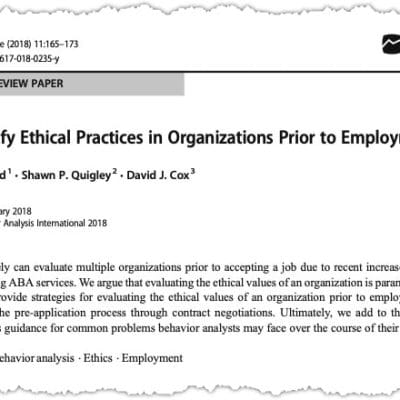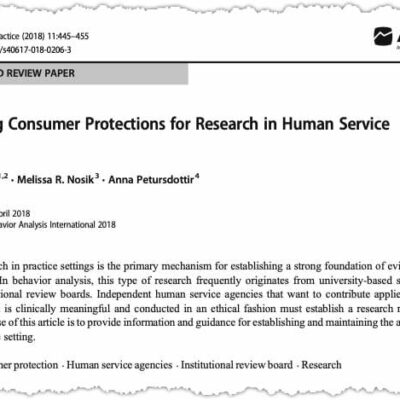Ethics of Standardization of Practice
Matthew Brodhead
Standardizing decision-making in behavior analysis may streamline practitioner efforts and allocate resources for more complex tasks, but its impact on practitioner performance and client outcomes remains unclear. This presentation from the 2019 Michigan Autism Conference outlines three recent studies on decision-making standardization, particularly focusing on visual analysis as a case study, while also addressing ethical concerns such as scope of competence and individualized treatment rights.
This product has been discontinued.
You may also like…
-
BundleSale!

7 Total BCBA CEUs
4 Ethics CEUs3 Supervision CEUsPlanetary Bundle
$69.94Original price was: $69.94.$48.94Current price is: $48.94. Add to Cart Quick View -
Article Quiz

1 Total BCBA CEU
1 Ethics CEUHow to Identify Ethical Practices in Organizations Prior to Employment
Matthew Brodhead, Shawn Quigley, & David Cox5.00 out of 5(1)$9.99 Add to Cart Quick View -
Article Quiz

1.5 Total BCBA CEUs
1.5 Ethics CEUsEstablishing Consumer Protections for Research in Human Service Agencies
Linda A. LeBlanc, Melissa R. Nosik, & Anna Petursdottir4.60 out of 5(15)$14.99 Add to Cart Quick View


